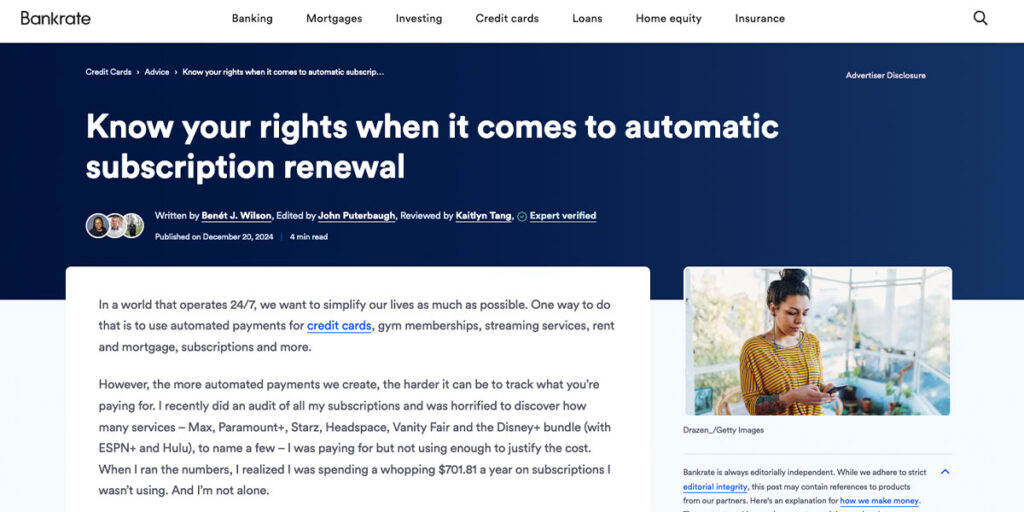Russel Morgan Shares Legal Insights on Protecting Yourself Against Unauthorized Charges
Unauthorized charges can be frustrating and financially burdensome, especially from subscriptions or auto-renewal agreements. As prevention is always better than a cure, it’s essential to understand your rights and the steps you can take to safeguard yourself. Russel Morgan, founder and partner at Morgan Legal Group, offers insights into navigating these situations effectively.
Understand Subscription Terms Before Signing Up
Before agreeing to any subscription or recurring payment, it’s crucial to read the terms carefully. “If there’s a pre-checked box indicating consent to auto-renewal, uncheck it to ensure you’re not agreeing to terms unknowingly,” advises Morgan. Additionally, always familiarize yourself with canceling subscriptions before signing up.
Steps to Take if You’re Charged Without Consent
If you find yourself billed for an auto-renewal without prior consent despite taking precautions, you have legal options:
- File a Dispute: Contact your credit card company immediately to dispute the charge. If the investigation rules in your favor, your account will be credited through a process known as a chargeback.
- File a Complaint: You can also file a complaint with the Federal Trade Commission (FTC). “In some states, companies are required to disclose automatic renewal terms at the time of sign-up,” Morgan explains. Transparency is key to protecting consumers; failure to disclose such terms can warrant legal action.
New Protections: The FTC’s ‘Click to Cancel’ Rule
To address the challenges consumers face with auto-renewal cancellations, the FTC introduced the ‘Click to Cancel’ rule on October 16, 2024. “For years, companies have made it difficult for consumers to cancel, often requiring multiple steps like phone calls or extended processes,” Morgan points out. “The new rule mandates that companies simplify the cancellation process to be as straightforward as the sign-up process.”
This rule is part of the FTC’s modified 1973 Negative Option Rule, which addresses deceptive practices in subscription and recurring-payment programs. By streamlining cancellations, the FTC seeks to ensure consumers are not unfairly charged for services they no longer want.
Proactive Steps for Consumers
To protect yourself from unwanted charges, follow these practical tips:
- Set calendar reminders for ending free trials.
- Use your credit card’s virtual assistant to set alerts on free trials.
- Contact companies to understand their terms for ending automatic payments.
- Carefully read the fine print before signing up for any subscription.
- Save all correspondence with vendors for future reference.
- Check your billing statements regularly to ensure no unauthorized charges appear.
Conclusion
You are not obligated to pay for services you didn’t consent to. If you believe your subscription was renewed without authorization, take immediate action by disputing the charge, requesting a refund, or filing a complaint with the FTC. Additionally, your state attorney general can assist in addressing these issues.
For more legal insights and assistance with consumer protection matters, visit Morgan Legal Group.
You can read on Bankrate.com









